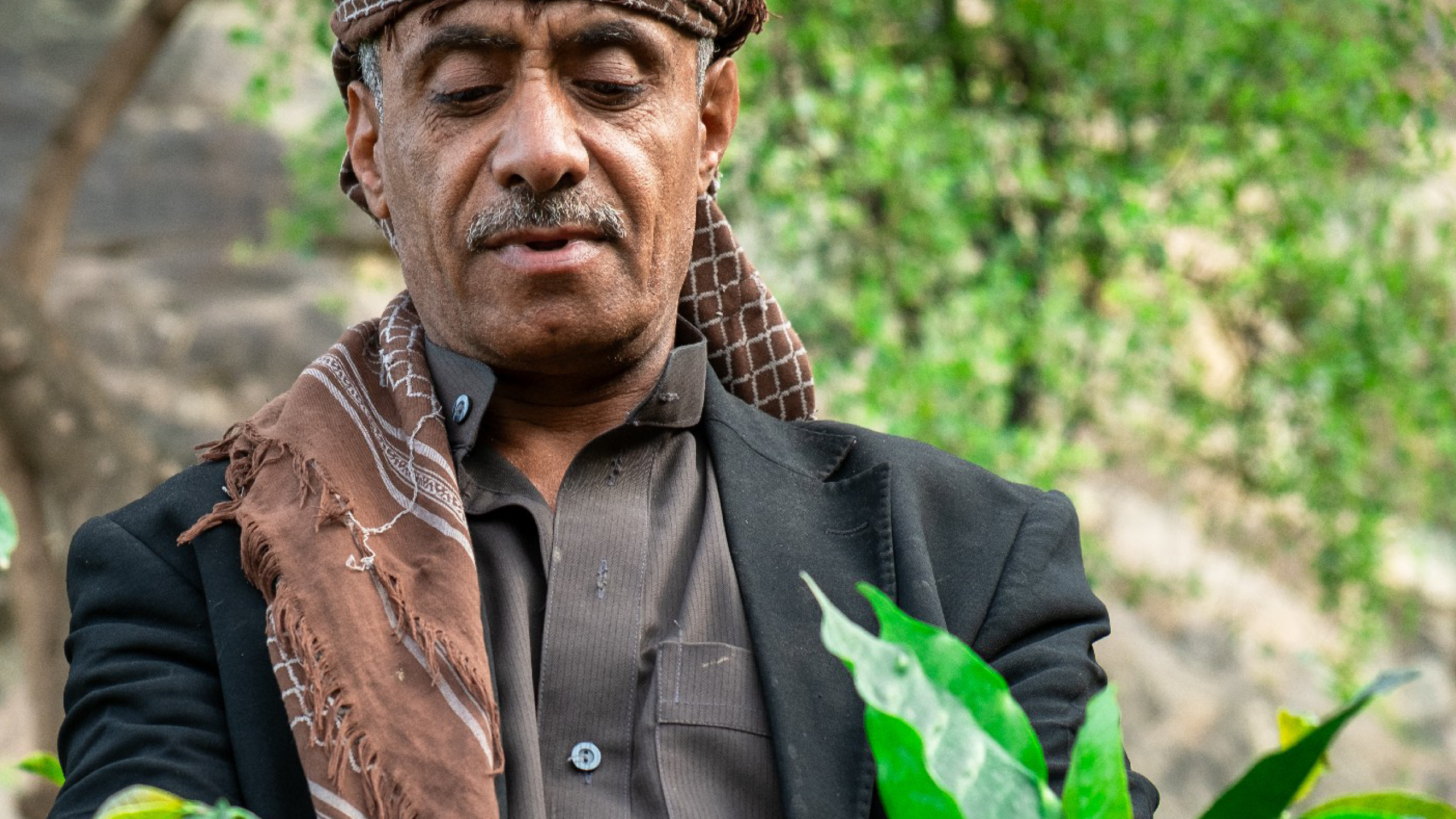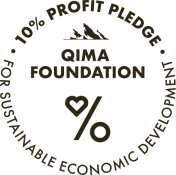
.png)
.png)
18.
Yahya Al Faqeeh
Jury code : 9738

jury score :
88.41
Genetics :
Yemenia
Process :
Natural
lot size :
105.00LBS
traceability
VILLAGE :Aljidan
REGION : Hayma Kharijiya
GOVERNORATE : Sanaa
ALTITUDE :2200masl
.png)
FLAVOUR PROFILE
Mandarin Orange, Nectarine, Candied Berries, Cane Sugar
Meet Yahya Al Faqeeh
Born in 1970, Yahya Al Faqeeh is the keeper of a 300-year-old family tradition: coffee farming. For Yahya, coffee is more than a crop; it is a heritage, passed down through generations. His earliest memories are of his mother teaching him the basics of irrigation and harvest—lessons that have shaped his life.
Yahya’s day begins early. The sight of coffee fruits brings him peace, setting the tone for his work. During the harvest, his routine is demanding; he starts at dawn and works until evening, pausing only briefly to share a meal with his family. Coffee, to Yahya, is not just the foundation of life—it is the lifeline of his family.
The challenges are severe. Pests threaten to consume more than half of the crop, and water scarcity looms, putting his livelihood at risk. Yet, Yahya's commitment never wavers.
For Yahya, farming is not merely about making a living; it is about protecting a legacy. He aims to pass on essential lessons to future generations—how to prune correctly, irrigate wisely, and care for the trees. He envisions a future where coffee farming thrives, built on better practices and fairer prices for farmers.
Looking back, Yahya’s advice to his younger self is clear: care for the land and the coffee trees. If a tree dies, plant another, and never stop expanding. For Yahya, coffee is not just a means—it is a duty, a connection to the past, and a gift for the future.
.png)

